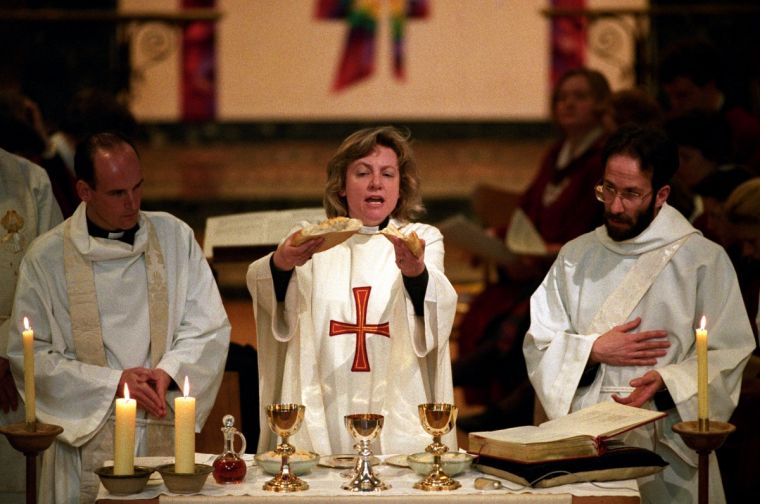Parliament celebrates 20 years of women in the Church of England

The Backbench Business committee of the House of Commons took the opportunity yesterday to discuss and celebrate the 20th anniversary of female ordination of priests in the Church of England.
The issue was brought to the committee by Caroline Spelman, the Conservative MP for Meriden in the West Midlands, who said the ordination of the first woman priest in the Church of England, Angela Berners-Wilson, was "making history" when it took place 20 years ago.
Speaking about the value of the more than 5,000 women who have since been ordained to the ministry, she said: "Some of the women in my constituency lack female role models within their own family.
"A female priest can provide real practical help, advice and support to young women making their first steps in motherhood without a family network around them."
MPs present at the discussion were overwhelmingly positive and made suggestions about how the Church could seize upon the opportunity presented by draft legislation on women bishops expected to be finalised in the summer.
Ben Bradshaw, Labour MP for Exeter, spoke of trying to alter the situation so that the maximum opportunity could be made for women bishops once General Synod has given final approval to their ordination.
"There may be an argument, where sees are currently vacant, to hold them vacant for just a little bit longer in order to give some of the fantastic women in the Church of England who will make wonderful bishops the ability to apply," said Mr Bradshaw.
Ms Spelman supported the idea in principle, but noted that in practice the plan could cause too many problems.
Recalling a conversation she had had with the Archbishop of Canterbury, the Most Reverend Justin Welby, on this matter, Ms Spelman said: "When a diocese is left vacant for any long period of time, life gets quite difficult for everybody else in the diocese."
"We must recognise that although it is a good idea in principle, because it would be a way to create space for women to move into, in practical terms, we want well-functioning dioceses.
"When the event gets very close, there might be an opportunity to do what the right honourable Gentleman suggests."
Sir Peter Bottomley, Conservative MP for Worthing West, asked Ms Spelman whether it might in fact be possible for the country to see the first female Archbishop of York or Bishop of London in the coming few years.
"It is a matter of chronology that bishops and archbishops must retire at a certain age," Sir Peter said.
"We admire and welcome the continuing services of the Archbishop of York and the Bishop of London, but we hope that there is no reason why the committees and councils that nominate people to those offices will not find the pent-up talent of women, which has not been able to be used, and allow one of them to be appointed and therefore come to the House of Lords straight away."
Ms Spelman agreed with Sir Peter, talking of the necessity of making sure the offices in question "always get the best person for the job".
Mr Bradshaw pointed to the valuable service provided by the new female chaplain to the speaker of the House of Commons, Reverend Rose Hudson-Wilkin.
"[Her appointment] was greeted terribly by some conservative forces in the media at the time, and she has turned out to be the most fantastic chaplain to this House," Mr Bradshaw said.
Sir Tony Baldry, MP for Banbury and the Second Church Estates Commissioner, concluded the discussion by reminding the committee of the importance of women in the Gospels.
"It was the women who found that the stone was rolled away and it was to Mary Magdalene that the resurrected Christ first revealed himself," he said.











